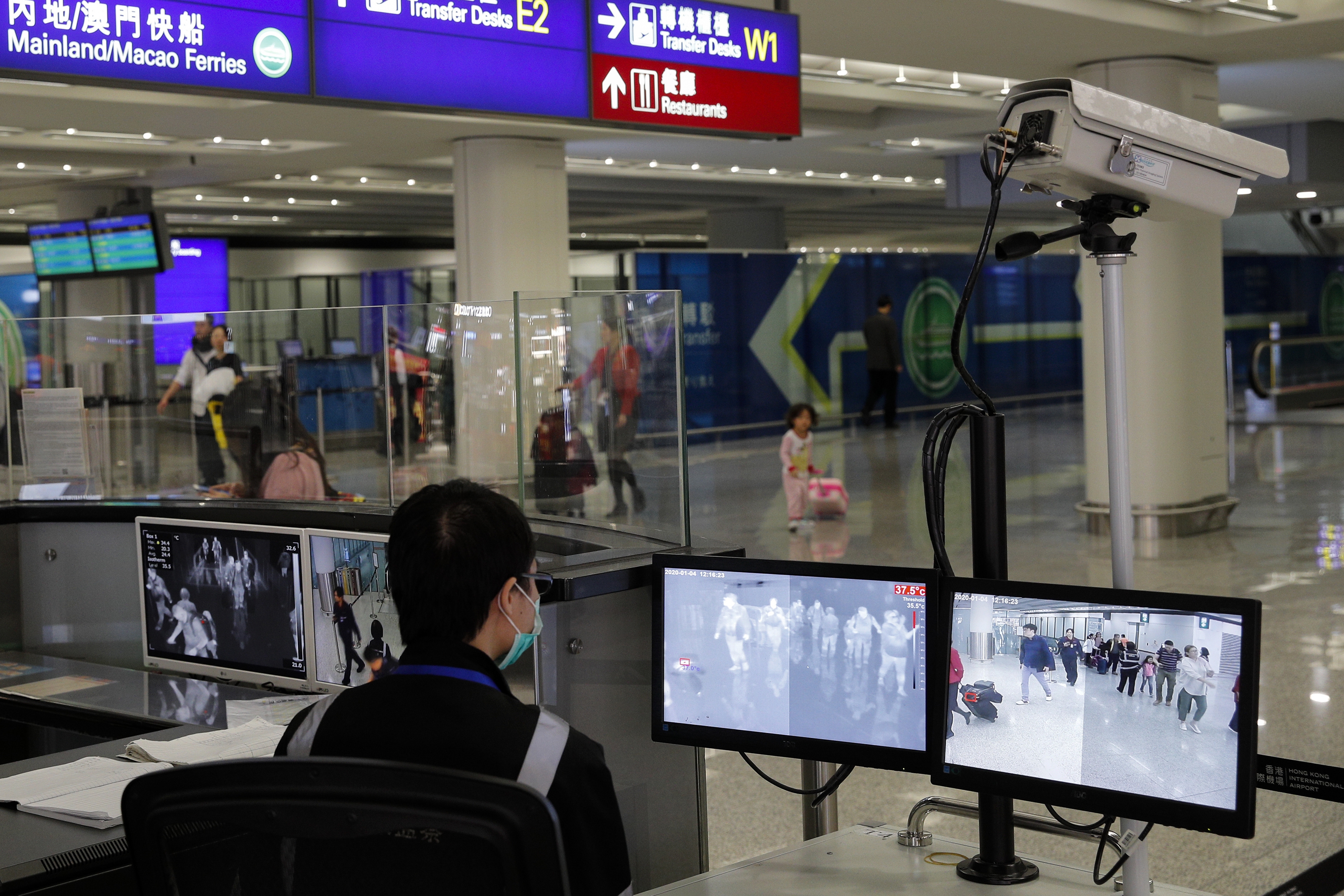Travelers monitored for mystery illness

THERMAL IMAGING A health surveillance officer monitors passengers arriving at Hong Kong International Airport on Saturday after authorities activated a newly created “serious response” level to a mysterious infectious disease that may have been brought back by visitors to mainland China. —AP
MANILA, Philippines — Health Secretary Francisco Duque III on Sunday ordered the Bureau of Quarantine to intensify surveillance of travelers coming to the Philippines amid reports of the outbreak of a mystery disease in China.
The order came after hospitals in Hong Kong raised their alert level to “serious” on Saturday as the mystery viral pneumonia outbreak in mainland China continued to spread.
Duque assured the public that the quarantine bureau is on alert and closely watching the border after 44 cases of the mystery illness had been confirmed in China.
He said he had instructed the bureau to tighten the screening of all incoming travelers, especially those with fever or signs of respiratory infection.
Flu-like symptoms
“I urge the public, especially those with history of travel [to] China, to seek immediate medical [attention] if [they] are experiencing any flu-like symptoms,” Duque said.
Article continues after this advertisementThe Philippines, which has been receiving heavy Chinese labor traffic since an online gambling boom in 2018, is vulnerable to the spread of the mystery virus.
Article continues after this advertisementDuque urged the public to “embrace healthy lifestyles, practice proper hand hygiene, and observe cough etiquette to prevent transmission of respiratory infections.”
The mystery disease was first reported on Dec. 24 in Wuhan, a central Chinese city with a population of more than 11 million — leading to online speculation about a resurgence of the flu-like severe acute respiratory syndrome (SARS) virus that killed hundreds of people, mostly in China and Hong Kong, in 2002-2003.
The number of reported cases has now risen from 27 to 44, with 11 people listed in serious condition, according to China’s public health watchdog.
The outbreak sparked fears in Hong Kong when a woman who traveled to Wuhan during the Christmas holiday was admitted to hospital on Thursday for treatment of respiratory infections.
By midday Saturday, Hong Kong’s Hospital Authority had reported a total of eight cases to the city’s health department.
Three were being treated under isolation conditions in a public hospital, while the other five had been discharged.
Enhanced monitoring
Hong Kong officials also implemented enhanced monitoring and infection control in public hospitals and clinics.
In mainland China, authorities reported that the major cluster of recent infections have centered around a wet market in Wuhan where wild animals were sold.
They were still identifying the cause on Saturday, but had determined that common respiratory diseases such as influenza, bird flu and adenovirus infection were not to blame.
So far, Chinese officials say there has been no human-to-human transmission, but Ho Pak-leung, director of the University of Hong Kong’s Center for Infection, advised the city to brace for that possibility.
“Preventive measures should be as stringent as possible,” Ho told Hong Kong’s public broadcaster RTHK, urging the mainland government to provide real-time updates.
Additional thermal imaging systems were put in place on Friday at Hong Kong’s international airport to check the body temperature of travelers arriving from Wuhan.
In Singapore, the health ministry also announced on Friday that all travelers arriving from Wuhan would be subject to temperature checks.—With a report from AFP